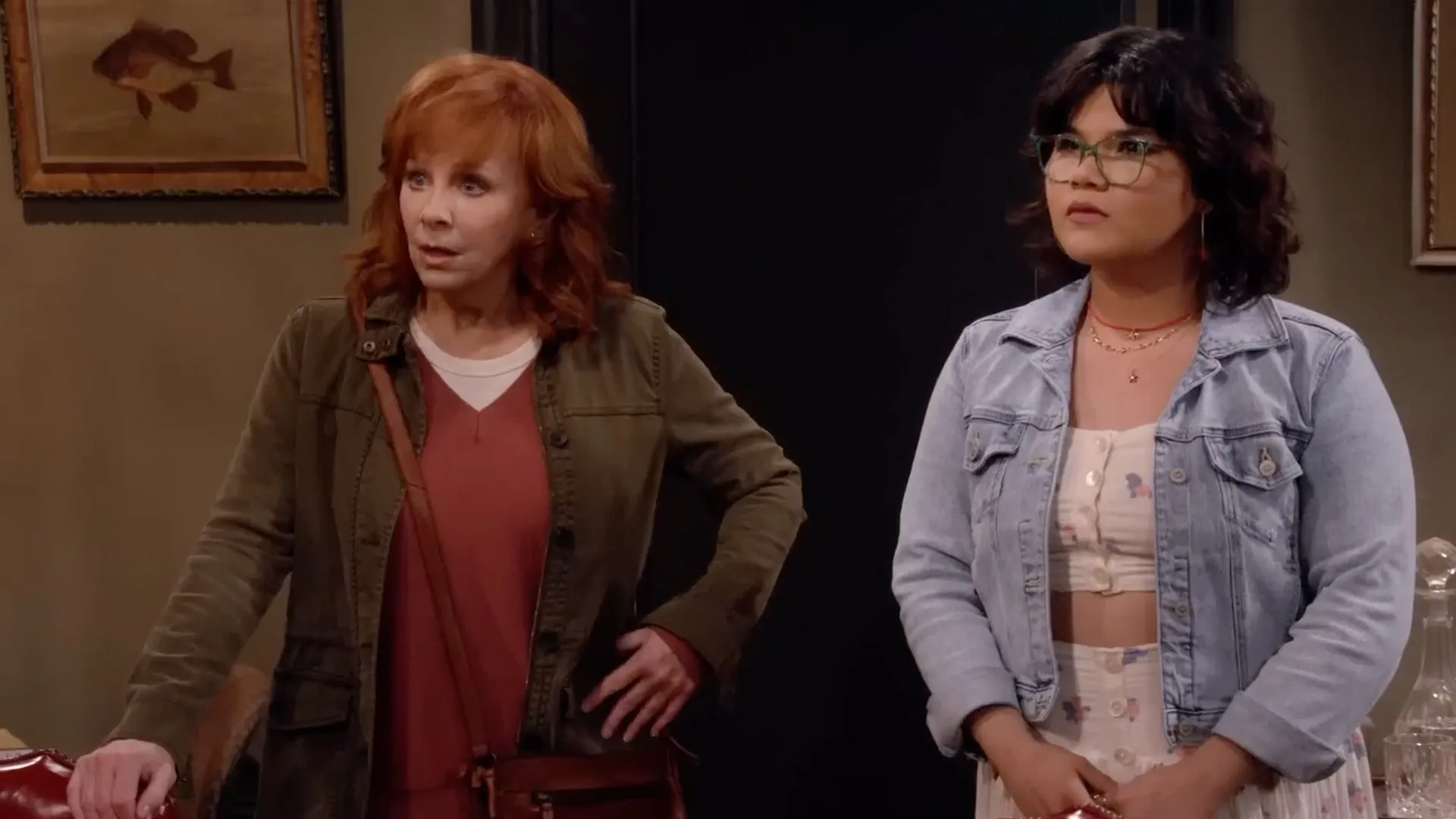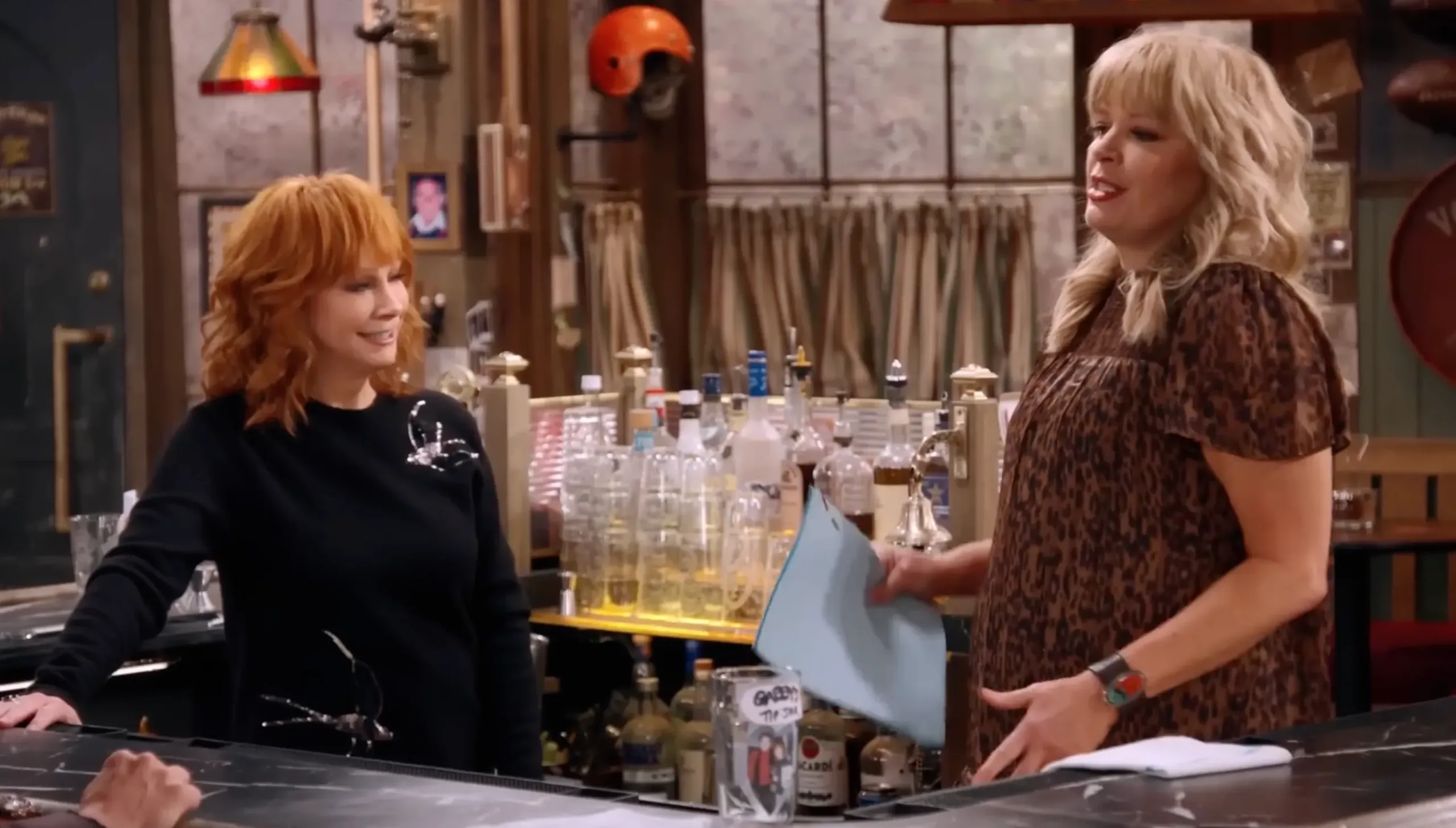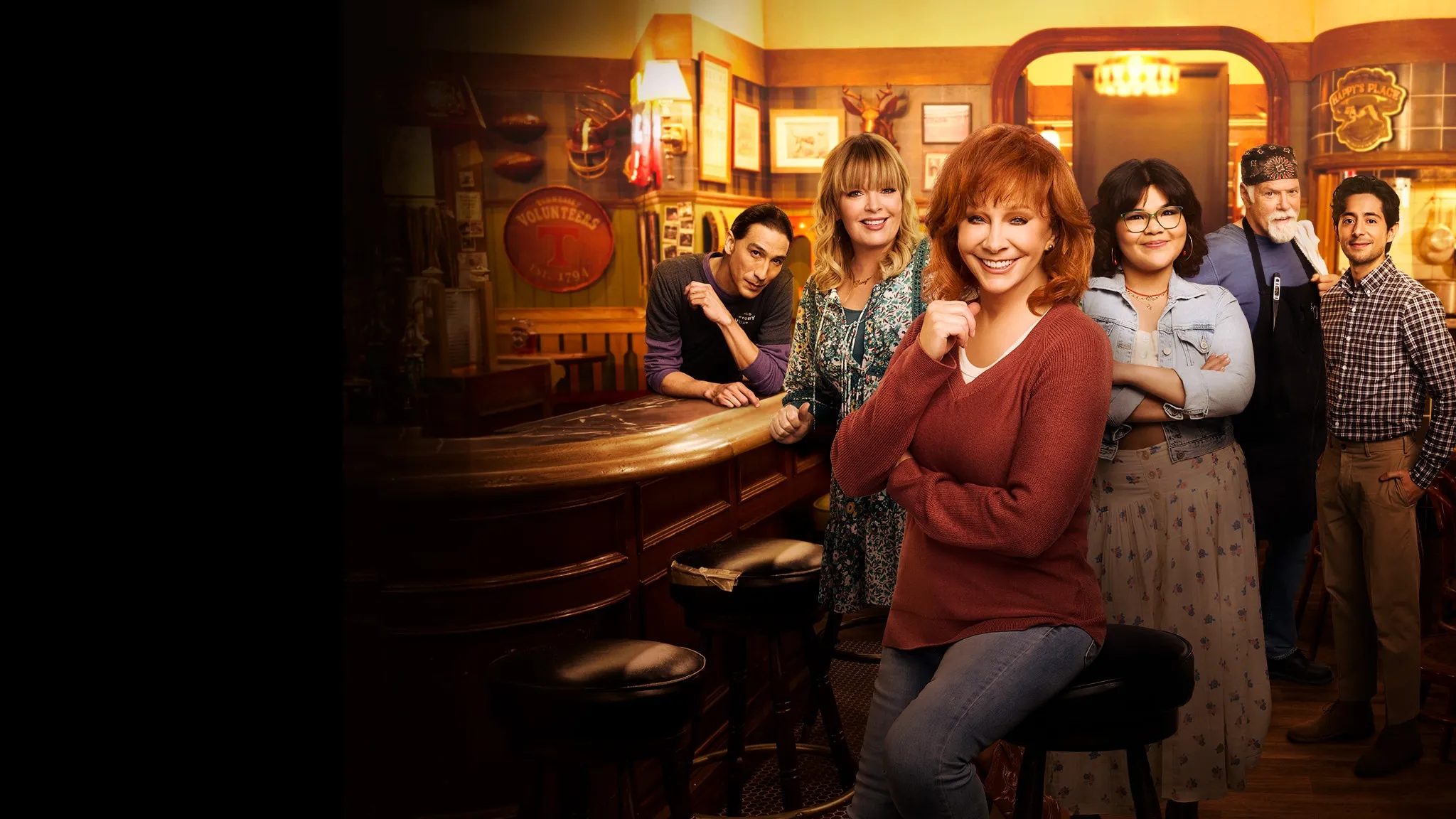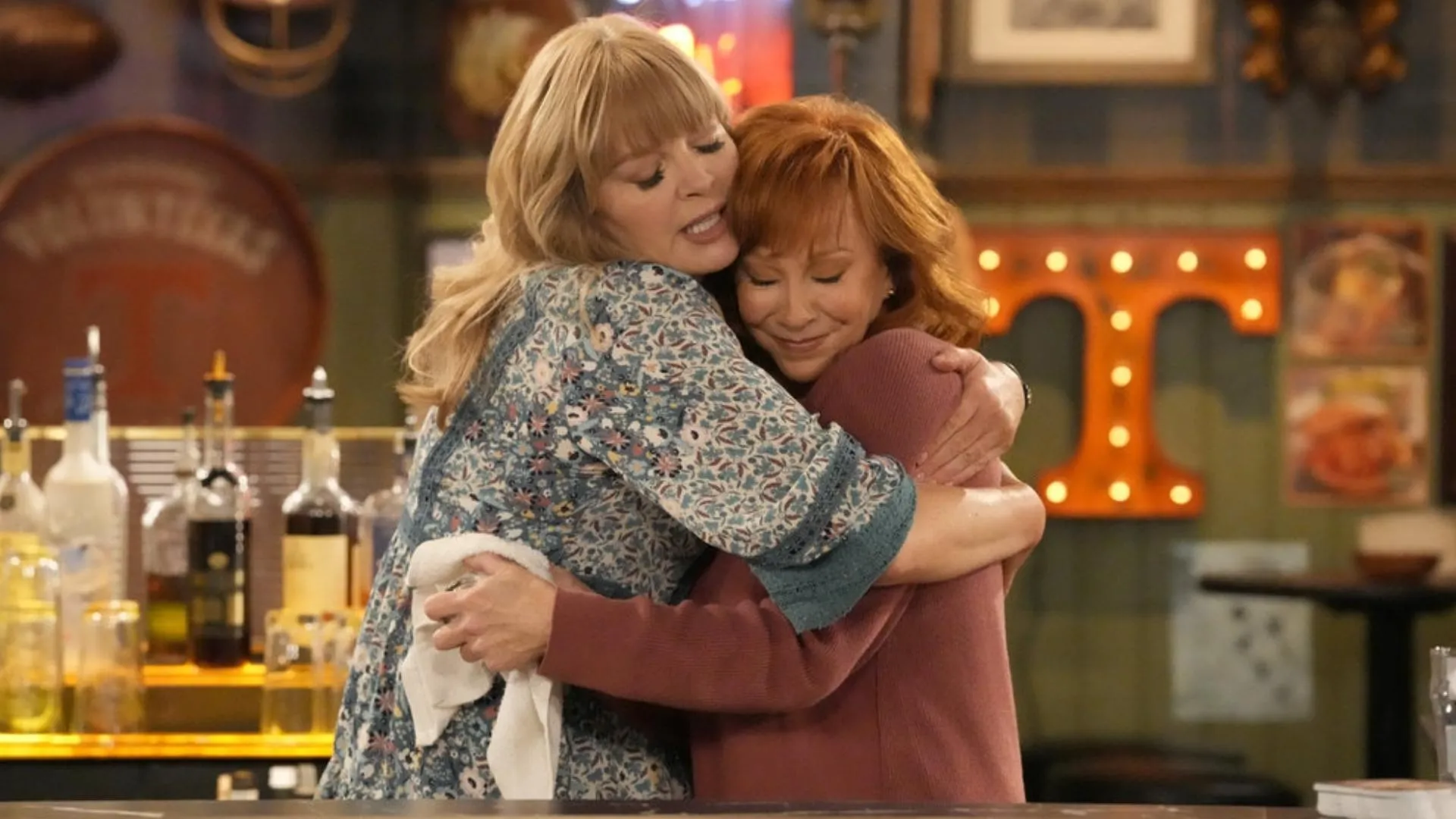Bobbie runs a beloved local watering hole known as Happy’s Place. But everything changes when her father passes away, leaving half ownership of the bar to Isabella—Bobbie’s younger half-sister she never knew existed. Stepping into her new role as sole owner, Bobbie is adjusting to the changes this brings when Isabella arrives.
Isabella has just learned of her father and is eager to connect with her roots at Happy’s Place. Yet she’s generations apart from Bobbie and sees things through fresh eyes. While Bobbie prefers sticking to tradition, Isabella dives in with new ideas. Their differing approaches cause some friction at first.
But underneath lie deeper emotions as each finds meaning in the place. Bobbie sees Happy’s as her lifeline after her father’s secret emerges. For Isabella, it represents acceptance into a family she never had. As the sisters spend more time together, their care for the bar and each other grows stronger.
The cast is led by country music queen Reba McEntire as the headstrong Bobbie. Opposite her is Belissa Escobedo, with charm and wit as the fun-loving Isabella. Together, their dynamic invites laughter while respecting the heart of their story. With a touch of nostalgia, Happy’s Place explores what truly makes a home and family for all its people.
The heart of Happy’s
Bobbie is steadfast in running her father’s bar. As sole manager for years, she prizes tradition and keeping Happy’s Place untroubled. Yet her world is upturned by discovering Isabella—and that she now must share ownership. Still adjusting to this change, Bobbie strongly doubts Isabella’s ideas.
Isabella finds belonging she’s never had. Eager to know the father who brought her into this world, she delves into managing Happy’s with a youthful spirit and a different approach. Not fully grasping Bobbie’s attachment, she moves fast in shaking things up.
Quirky Gabby is always near with laughter. As Happy’s bartender, she admires Bobbie but adores Isabella’s willingness to listen. Gabby playsfully eases tensions between the girls as they learn to see each other.
Quiet Emmett prefers his kitchen domain. But the chef gifts counsel to all embracing Happy’s as family, as the others do. And accountant Steve? His germaphobic quirks amuse while he lends capable care to Happy’s accounts.
Together, this crew breathes life into the bar as Bobbie and Isabella start to find their rhythm running it—and acceptance as sisters.
Finding family
Bobbie and Isabella differ vastly in life experiences due to Happy’s choices. Bobbie sees her father one way yet discovers he had another family, too. Finding Isabella means finding the dad she thought she knew slip away. Isabella never knew of her father and seeks understanding of where she comes from through Happy’s Place.
This bar represents community, a place bringing people together. For Bobbie, it holds her father’s memory, and she finds purpose in caring for it, yet Isabella’s emergence upends what she believed. To Isabella, Happy’s Place offers hope that her past need not be forgotten. It could become her haven, as it is for others who treat it like an extended family.
The will rocks their worlds, leaving half ownership to each. Isabella grasps this as her chance to belong somewhere. For Bobbie’s control over Happy’s was certainty; it was sharing something to adjust to. Through their clash of views, we watch them navigate new bonds as sister-owners, each learning the other’s meaning in the space they now share.
Bringing Happy’s to Life
Happy’s Place follows the traditional sitcom format, filmed before a live audience to capture organic reactions. This lends an air of welcoming inclusion, as though viewers too sit among patrons at the bar.
Under skilled direction, visuals craft the lighthearted atmosphere. Scenes unfold casually amid the homey bar decor, allowing humor in conversations and character quirks to shine through without fuss. Subtle blocking and zooms highlight comedic beats.
Central to every episode, Happy’s bar exudes warmth as a community anchor. It hosts lively debates over drinks as much as tear-filled talks in corner booths. Scenes pivot from raucous laughs to tender drama with ease, the establishing shots reminding us all to find solace within its walls.
Timeless mixups and physical gags also bring smiles. Whether ornery patrons or spills and shocks, the cast handles each incident with contagious charm. In Peppy’s ready embrace of pranks too, we see why Happy’s draws people in, staff included, to feel part of something more.
Bringing Family to Life
Reba McEntire is a comedic master. For over two decades, she has delighted audiences with her gifts. In Happy’s Place, she artfully balances heart and humor as Bobbie. Faced with sudden changes, Bobbie’s worries feel grounded while her wit shines through. McEntire breathes deep life into this familiar but new character.
Belissa Escobedo brings vibrant energy as Isabella. Far from Bobbie in years, she matches her in spirit. Escobedo injects charm into every scene, keeping Isabella’s adventurous nature fun yet sincere. Her passion draws both laughs and understanding for striving to know the father missing from her life.
Together, the actresses weave complex threads. As siblings learn from one another, their bonds emerge gradually through frustration and care alike.
But the springs of genuine connection between them, woven into every glancing smile or hesitant hug, are what draw us through challenges into hope their bonds may only strengthen with time. In McEntire and Escobedo’s hands, family comes to feel within our embrace too.
Finding Their Flow
In the premiere, Bobbie rings in another day at Happy’s, unaware that soon she’ll share the keys. Isabella’s arrival brings surprises that spin Bobbie off course. Yet through the staff’s aid and her own calming down, Bobbie accepts this change could offer what they’ve both missed.
Episode two sees the sisters still blending their styles. When legal issues arise, it strains their partnership further, leading to truth in rash words on both sides.
But openings also come: Isabella learns her sass amuses where it stings Bobbie, and Bobbie sees beyond frustrations to what this odd family might achieve with understanding instead of upset. Their bond, though bumpy, now flows with a current that may carry them into anchors together instead of waves that toss them apart.
A Toast to Happy’s Warmth
This review has sought to shine light on what makes Happy’s Place a welcome addition to the sitcom world. Under the steady hands of its cast and crew, it invites us into daily life at a local bar where the community gathers with care.
Through its episodes so far, Happy’s has demonstrated a knack for blending humor and heart. While finding footing, its focus stays on emotional cores of family, acceptance, and home. This grounds even farcical moments and spotlights talents like McEntire’s that breathe sincerity into laughter.
With Abbott’s deft guidance, more character depths and location flavor are sure to unfold. Yet Happy’s strong point remains its ability to make each session feel like joining lively friends. Just as the characters find purpose in their bar, so too may the series continue uplifting audiences in need of compassion and lightness alike.
For those seeking comfort in routines or nostalgic gems, Happy’s Place offers respite. Its warmth makes the perfect pair to Reba’s beloved charm or fireplace flick on a quiet night. Here’s hoping it brings many more such feelings each week to come. Now, who’s ready for a round?
The Review
Happy's Place
With heartfelt characters and McEntire's superb leading talents, Happy's Place shows promise as a nostalgic yet relevant sitcom. Though finding its rhythm, compassion shines through amid humor, bolstered by poignant themes of family's evolving ties. With care and creativity, this welcoming series could continue delighting audiences for seasons to come.
PROS
- Warm setting and ensemble cast feeling like "home."
- Focus on meaningful character interactions.
- Solid comedic foundations with room to evolve storytelling
- Nostalgic charm balancing past influences and modern sensibilities
- Star power and experience of Reba McEntire and producer
CONS
- Finding character and location definitions in early episodes
- Smooth flow between tones not yet fully optimized
- Reliance on familiar multi-camera format





















































